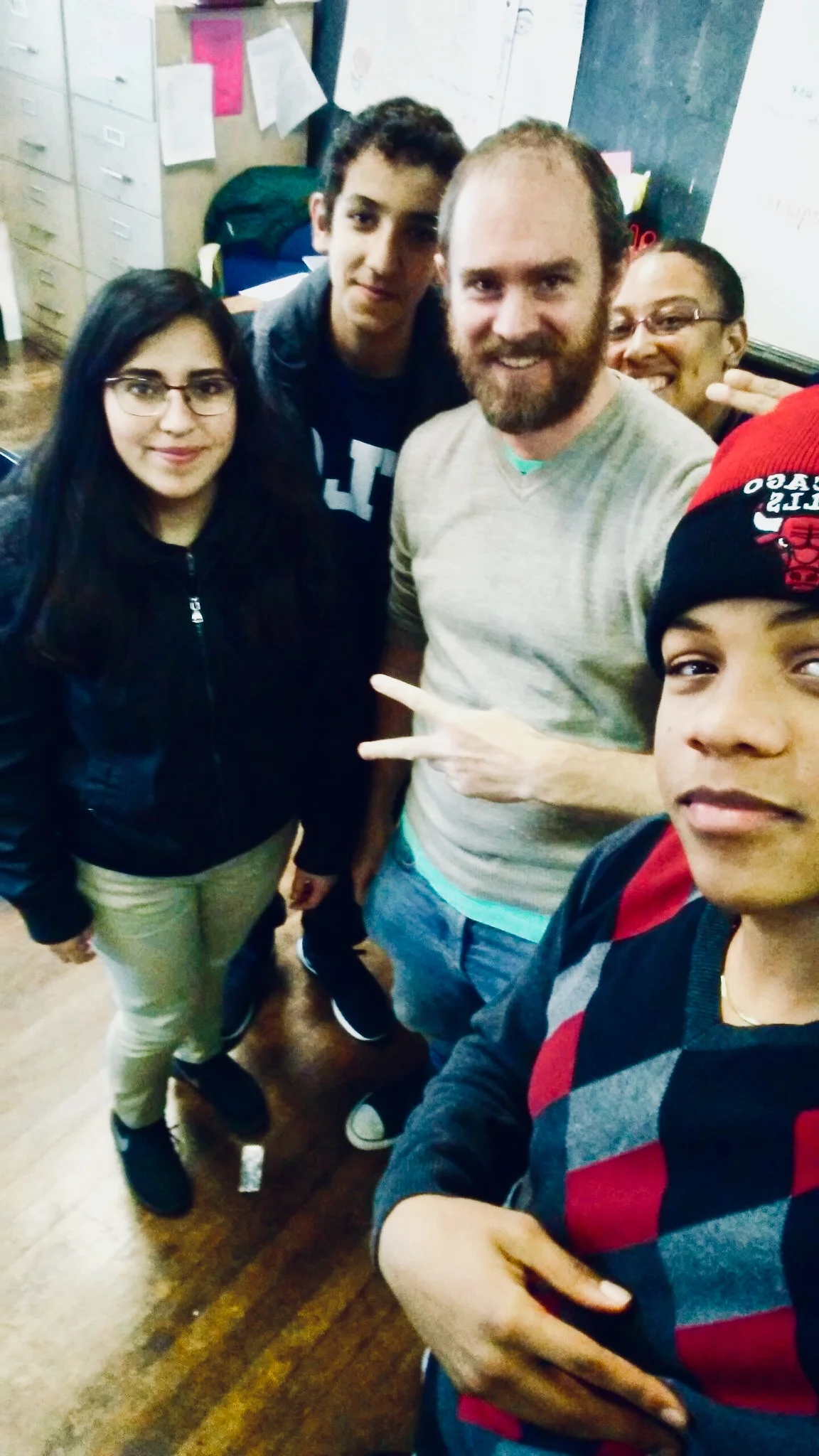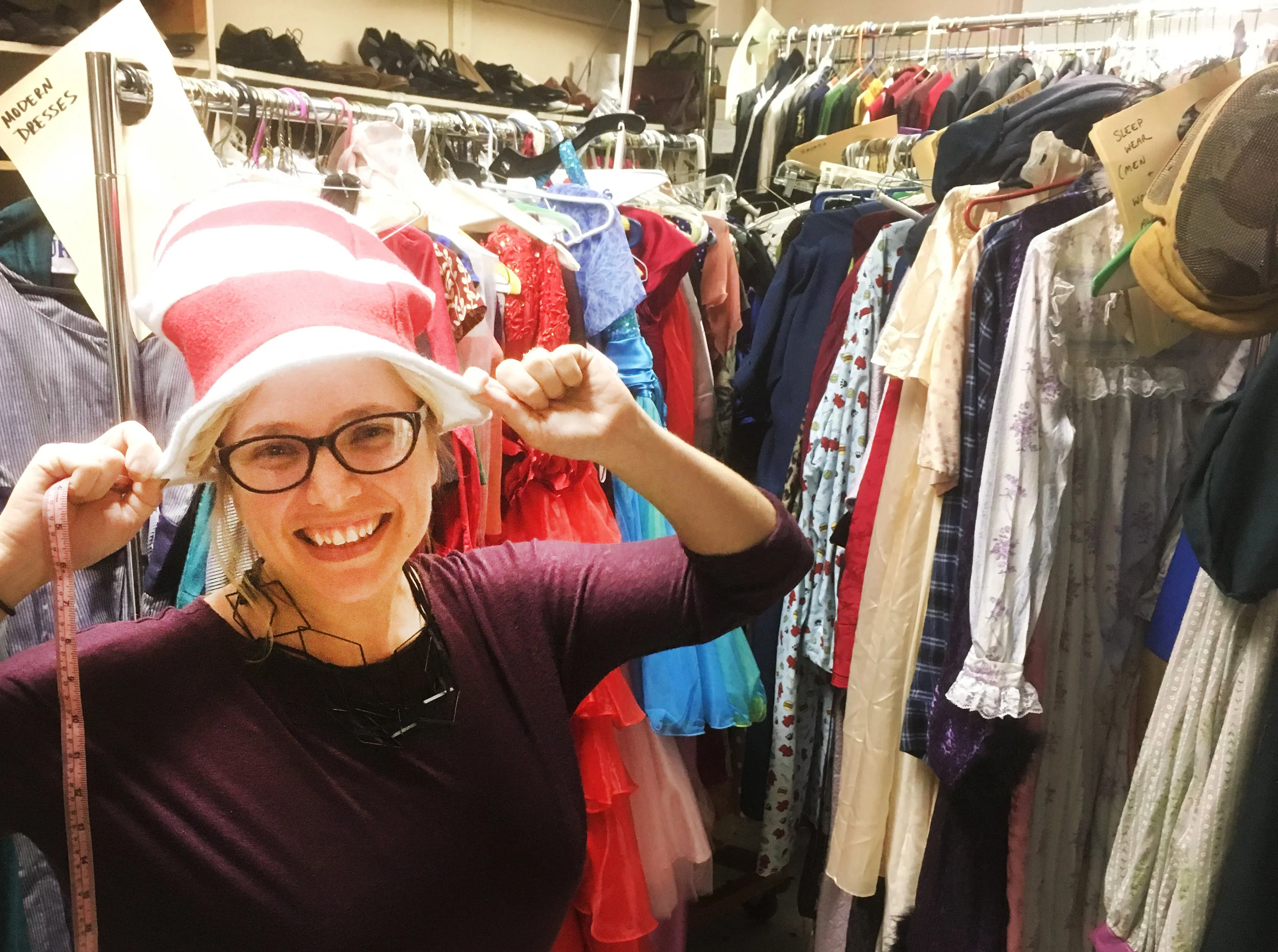I walked into the room planner in hand with my all black on ready to focus on “the work.” Conservatory style… I wanted to be the “serious artist” who sweats in the studio for seven hours and ends the week with a profound piece of work. However, with the guidance of my collaborator and director Christina May, the week took a radical turn.
Esperanza y Gravedad, Entrevista con Michael Hollinger, por Fernando Mendez
“Lo que es interesante, para mí, es que en la tradición clásica de la escritura de dramas, los personajes avanzan en el tiempo, encuentran obstáculos y los superan. Y plantea preguntas en las cabezas de la audiencia: ¿vengará Hamlet la muerte de su padre? Esas preguntas son sobre el resultado y son importantes para nosotros. Hope and Gravity subvierten eso, porque hay preguntas más pequeñas en las que dices ... Me pregunto si esta gente se va a casar, o me pregunto si este asunto será descubierto. No hay clímax clásico en la obra, ningún lugar donde se respondan todas las preguntas en una gran batalla…”
Hope and Gravity, an Interview, from Fernando Mendez and Michael Hollinger
“What is interesting about it, for me, is that in the classic tradition of play writing, the characters are moving forward through time, encountering obstacles and overcoming them. And it raises questions in the audiences heads—Will Hamlet avenge his father’s death? Those questions are about outcome and they are important to us. Hope and Gravity subverts that, because there are smaller questions where you say...I wonder if these people are going to get married, or I wonder if this affair will be discovered. There is no classic climax in the play, no place where all questions are answered in a big battle…”
In the Bright Metropolis, from Gregory Isaac
“I hope I get to stay in Philly for a long time yet to come, (I feel like I might have finally landed in exactly the right place at exactly the right time in my life), but if for some reason the road carries me on to somewhere else, I will, at least, look forward to discovering that new place and the ways in which it connects the people that call it home.“
We are not so far apart, from Mary Carpenter
"How could a movie released 57 years earlier resonate so fully with a teenager bred on the immediacy of YouTube personalities and memes? Simple, good writing is good writing. Writing that trusts the audience and presents them with recognizable surprise, new takes on the experiences we have every day will stand the test of time. We recognize the players and the situations, but the lens through which they present it underlines a familiar and often universal experience in a surprising way. This is at the heart of A Few of Our Favorite Things, Jen Childs and Tony Braithwaite’s newest cabaret."
The Magic of Monday, from Actor/ Educator Emily Kleimo
"Widener is a unique place. The school was founded in 1902 and is specifically for students with physical, medical and mental disabilities. The student body represents a wide range of abilities and socio-economic backgrounds. Regardless of a student’s individual needs, the goal is to help each pupil reach their potential through the various programming and therapy offered at Widener. 1812 Outreach gets to be a variable in that equation once a week throughout the school year."
Empezó de hablar sobre imaginación, de Chris Davis
"Empezó de hablar sobre imaginación, como puede ver cosas en sus mentes pero no tiene que ver los en realidad. Yo digo a todos que cierran los ojos y imaginan París. Digo que por 30 segundos nosotros usamos los imaginaciones, y en este clase no hay examen, no hay libros, estamos aquí para divertirnos, y imaginación es la alma del ser humano. Todos tiene imaginación, y especialmente cuando eramos niños, y el mundo han dicho que es tonto o no es tan chido, pero ni modos todavía los tenemos, adentro."
See things without ‘seeing’ them, from Actor/Educator Chris Davis
"I suddenly launch into a speech about imagination, about how you can see things without ‘seeing’ them. I make everyone close their eyes and imagine Paris. I talk about how for the next 30 minutes we will use our imaginations, that in this class there are no tests, there are no books, that we are here to have fun, and that imagination is at the very soul of human experience. That we all possess it, and especially when we were children, and that we’ve been told it’s stupid or not cool, but we still have it, buried beneath us."
On Saying No, from Nia Benjamin
Back with family, from The Carols composer Monica Stephenson
There should be you, from This Is The Week That Is cast member Sean Close
The guiding principles, from Education Director Marla Burkholder
On a day like today, from costume designer Jill Keys
"The first rehearsal for a collaborative piece is always slightly nerve wracking for me as a designer. I am walking into a room where there is already a dynamic in place, and it is even worse when everyone is funny and smart. This Is The Week That Is is a show that’s been annually happening longer than I have lived in Philadelphia; if my puzzle piece is to properly fit into this institution I have to go above and beyond as a designer, and get into the brains of these people who are churning out the characters..."
Notes on the ending of the run, from Dito van Reigersberg
"I guess what I love about this play is that it's very tightly written. The comedy is punchy, the characters are very vivid, and from this bizarre opening premise of this weird detail of Barbra's mall/basement, we get to plunge into a world where all the characters are sympathetic and flawed and complicated."
Traducción e imaginación, de Fernando Mendez
Translation and imagination, from Fernando Mendez
"Get off my lawn!", from stage manager Tom Shotkin
If comedy is tragedy plus time, I need more time, from Jennifer Childs
On November 23, 1963 the cast of the British political satire show, THAT WAS THE WEEK THAT WAS, scrapped all the material they had written that week, went on live television and publicly mourned JFK who had been assassinated the day before. There were no jokes, just tearful and sincere testimonials about an American president these Brits described as a “gigantic marvelous present”.
Capturing the Moment, from Darnelle Radford with Dito van Reigersberg
I make my way to South Philly to meet for the interview. When I arrived, I could hear the rehearsal. This was the first run-through with an audience that consisted of the production team. I wanted to walk in but chose to listen through the door. I heard about ten minutes or so of the ending. He’s ready and I do not plan to waste his time.
Fierce, Fabulous, and Sure-footed— from Grace Gonglewski
Jilline was always the smartest person in the room. Her Bryn Mawr pedigree, love of the Greeks, inexhaustible knowledge of movies and songs from bygone eras as well as religious iconography was inspiring. I think of that 1970’s Enjoli perfume commercial, where a sexy woman in purple sauntered toward the camera with a frying pan while a songstress crooned, ‘I can bring home the bacon, fry it up in a pan, and never let you forget you’re a man.’




















